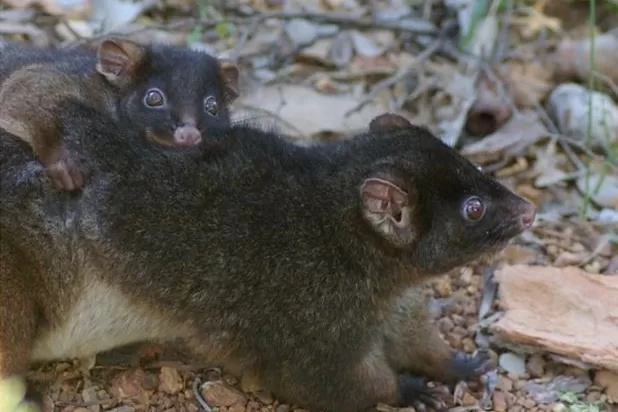- In short: New research has found how western ringtail possums are adapting to climate change in South West WA.
- The beloved species, endemic to the area, is listed as vulnerable.
- What’s next? Researchers say the Margaret River region will be a refuge for possums affected by climate change in the future.
A West Australian region renowned for its wine industry and surfing spots will be a future refuge for possums affected by climate change, new research has found.
The state’s South West region is home to the western ringtail possum, a well-loved species listed as vulnerable due to its declining population.
A study by University of Western Australia masters student Grace Marsh and her supervisor Sean Buckley set out to understand how the possums had adapted and would respond to climate change.
“This is obviously quite a burgeoning threat, especially in South West WA, so we really wanted to get a good idea about which regions might be the most challenging for possums to adapt to,” Dr Buckley said.
The research found populations between Perth and Bunbury were at the highest risk and would struggle to adapt to climate change.
“We already know that more northern regions have this kind of nice, temperate area that we live in and enjoy every day, [but] this is becoming a lot more arid and a lot quicker,” Dr Buckley said.
“So this is probably where a lot of the challenges are for the possums, that this is now pushing beyond their biological limits.”
It was not all doom and gloom for the species with the research finding possums were less vulnerable south of Perth, along the coastline between Margaret River and Walpole.
“The modelling shows that this is going to be one of the last bastions of a good climate refuge for the possums in the future,” Dr Buckley said.
He said more possums might migrate or be placed to establish new populations in the Margaret River region, so it was important to protect habitat in the area.
What can you do to help?
As part of Ms Marsh and Dr Buckley’s research, the community was asked to collect samples from dead possums to be tested for genetic information.
Ms Marsh took tissue samples and DNA that allowed her to study local adaptation to climate and predict how vulnerable the possums were to climate change.
She said the new data, which the community helped her get, was essential for filling gaps in existing data.
“I was genuinely surprised and amazed at the engagement and passion of the Margaret River community towards western ringtail conservation,” she said.
“I was expecting to get 10 samples, if I was lucky, but I received dozens.”
Dr Buckley said there were other steps people could take in their own backyard to help protect vulnerable possums from climate change.
“One of the most obvious and direct threats to possums that we see is, of course, heat stress during summer months, so … having water stations in your backyards and shelter for them is really valuable,” he said.
“We know [the possums] are going to get more heat-stressed as climate change gets worse, so really even using your own backyard as a nice little refuge for possums is really important.”
Find more local news
Browse for your location and find more local ABC News and information
